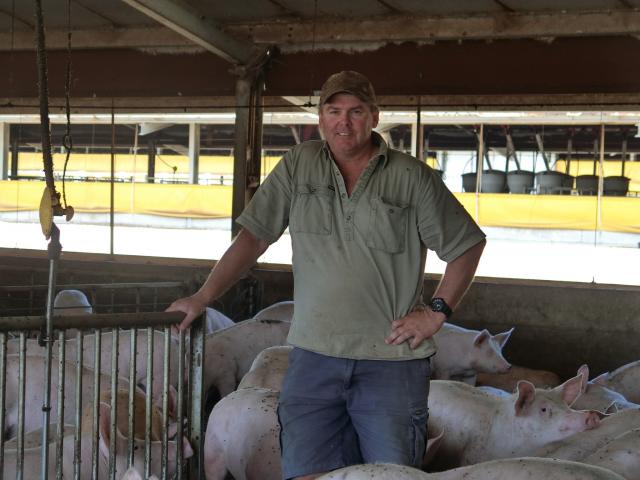Traceability changes to protect the WA livestock industry
Fine issued for footrot quarantine breach
Are your rams negative for ovine brucellosis?
Horse owners: be aware of Hendra virus risk
The risks of transporting cattle in late-stage pregnancy
Another year of busy activity for the LCU
Traceability changes to protect the WA livestock industry

Livestock traceability regulations were amended recently to further protect the Western Australian livestock industry from animal disease risks.
A key change is the adoption of the National Livestock Identification System (NLIS) Pig Standards into the Biosecurity and Agriculture Management (Identification and Movement of Stock and Apiaries) Regulations 2013.
Department of Primary Industries and Regional Development livestock biosecurity director Peter Gray said the changes were being implemented nationally and brought the pig industry in line with the NLIS for cattle, sheep, and goats.
The NLIS is Australia’s system for identifying and tracing livestock. It provides an assurance to trading partners that we know where livestock have been over the course of their life, and enables the department to respond quickly to any disease or residue incidents.
In the case of pigs, the system involves linking pigs to a property using a property identification code (PIC), pig identification (registered tattoos or approved NLIS ear tags), and using the PigPass database to record movements.
PigPass automatically updates the NLIS database to provide a single, central location for national traceability. This system will allow pigs to be traced quickly if a disease outbreak occurs.
Key changes
Dr Gray said key changes to note were the requirement to record all pig movements between properties with different PICs, and the changes to pig identification requirements.
- Slap brand tattoos now can only be used to identify pigs 25kg and over.
- Pigs under 25kg must now only have an approved NLIS ear tag, with yellow for homebred stock and orange for non-homebred.
Dr Gray said that these national arrangements support the traceability of livestock susceptible to foot-and-mouth disease, which includes sheep, goats, cattle, and pigs.
Foot-and-mouth disease is regarded as one of the greatest threats to the Australian livestock industry, and a large outbreak could cost Australia more than $50 billion over 10 years.
The detection of foot-and-mouth disease and African swine fever virus particles in illegally imported animal products confiscated at Australian airports earlier this year by the Federal Department of Agriculture highlights the need to maintain a strong traceability system.
WA Pork Producers’ Association (WAPPA) president Dawson Bradford urged WA producers to act immediately to support the traceability changes.
Mr Bradford said it was critical that pig producers protect their industry by correctly identifying their pigs, completing movement documentation, and recording all movements into the national database.
If the current outbreak of African swine fever being experienced in Asia and in Europe were to reach Australia, it would be vital to be able to trace pigs quickly to control the spread of the disease.
For more information about NLIS in pigs, see the department webpage.
The department has a dedicated helpline for questions relating to stock owner registration, livestock identification, NVD waybills, and using the NLIS database. Call 1300 WA NLIS or 1300 926 547, or email nlis@dpird.wa.gov.au.
NLIS pig checklist
- Check you have a PIC for each property you run pigs on.
- Ensure you have obtained pig identification equipment – a slap brand tattoo (pigs 25kg and over) or approved NLIS tags (pigs below 25kg).
- Complete a PigPass National Vendor Declaration (PigPass NVD) each time pigs are moved off your property.
- Within 48 hours of receiving pigs on your property, record the movement on the PigPass database.
- Have questions? Call 1300 WA NLIS or 1300 926 547, or email nlis@dpird.wa.gov.au
